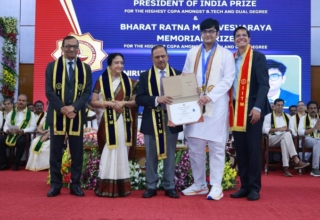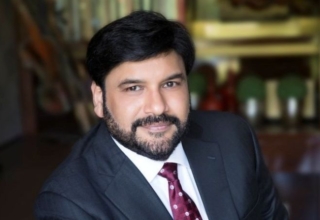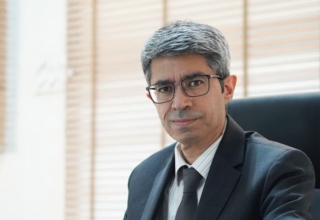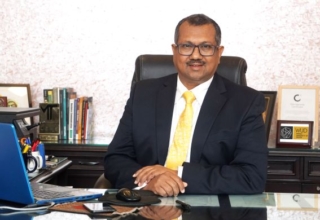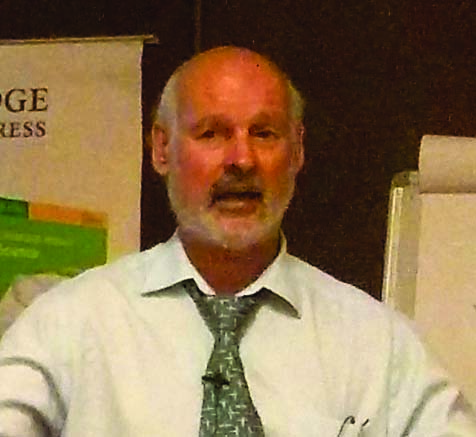
The ‘established’ and taken for granted usage of saying ‘into’ for multiply (X) in Mathematical expressions in Indian English is wrong. Elsewhere it would mean just the opposite, that’s DIVIDE.
 Simon Lind, International Teacher Trainer & Professional Development Manager, Cambridge University Press, International Education conducted a series of one-day workshops for CIE-affiliated school teachers in Hyderabad, Pune, Chennai, Chandigarh, Mumbai, Bangalore and Delhi over a period of 10 days in November. Simon told Autar Nehru in Delhi that the aim of the workshops was to introduce the key skill of critical thinking among participants.
Simon Lind, International Teacher Trainer & Professional Development Manager, Cambridge University Press, International Education conducted a series of one-day workshops for CIE-affiliated school teachers in Hyderabad, Pune, Chennai, Chandigarh, Mumbai, Bangalore and Delhi over a period of 10 days in November. Simon told Autar Nehru in Delhi that the aim of the workshops was to introduce the key skill of critical thinking among participants.
Can you briefly tell me, what is this workshop about and what are you trying to achieve?
This workshop is about applying critical thinking techniques to the Cambridge education method of teaching. That means we are looking at and examining how critical thinking skills can improve our teaching. It also means how applied critical thinking skills can improve students’ experience of learning. A big problem facing many of our students is they don’t engage with lessons or are not getting on with lessons, so how do we improve student engagement in the lessons is a big challenge? One of the key ways of doing that is making the teachers become a little bit more self-aware. In other words what are they actually doing in the classrooms? That is the focus of this workshop. So, what we are doing is that we would do an activity and then we would reflect on that activity–what are its benefits and how can you learn form that. We are using these elements to ensure teaching/learning experience is improved.
Can you explain, what exactly you mean by doing an activity and how it enhances critical thinking in teachers?
A Part of what we do at Cambridge (International Examinations) is we encourage teachers to be reflective. What I want is the teachers to be aware of what they are saying, aware what they are doing, look what their students are doing? Are they actively engaged? A simple way would be stand up and look yourself into the mirror. What am I actually doing? What am I saying? I want teachers to become aware. This is applying critical thinking to themselves.
The second element, we are spending a lot of time is looking at classroom activities and knowledge. Here we evaluate what we do with that knowledge. Is it correct? Is it right? We evaluate what we are using and teaching fits the purpose. This is wonderful exercise of applying critical thinking in classroom context. So in a way this is an introduction to critical thinking in classroom context.
So, it has been a hectic schedule for you over the last 10 days or so, and you would have met a number of teachers in all these cities, how did you find the response?
Of the vast majority of Indian teachers, I work with in the sector that we work, here we are talking about CIE-affiliated international schools and to a certain extent some private curriculum schools from CBSE/ICSE, I found on those teachers is that they are enthusiastic, dedicated and they are wanting to do very best for their students. That’s why they are attending workshop like this. And I am excited to work on it. They are keen to improve their skills and learn new techniques that can improve their teaching.
You pointed out that we Indians use some wrong mathematical English language. Can you elaborate on it?
Short answer is yes. What we know is English as a language is key in India. There are variations on English around the world. I suppose, as I am usually saying that I am multi-lingual in English. I speak British English but understand Indian English, American English, Australian English, African English, African English…each of them is special and unique in its own way, but here it is used as a communication tool, the absolute key about that is making each other understand , so we can understand each other. What I am talking about in that particular context is making sure Indian are aware if they want to succeed in global world, they got to be aware of the way they are using the language. There are some mathematical terms unique to Indian English. For instance ‘into’ in Indian English means multiply, for rest of the world it means opposite…divide. That is what I would like Indian teachers to use. They need to be aware of these little differences in the use of language.
Are there many such instances where Indian English has variations from international usage
It is not a vast difference and it is very important to say that some people think that these variations in English are in some ways inferior and not proper English. That is wrong. We know, I certainly know, and understand we at Cambridge kow and understand that English is spoken widely and there in no longer so called proper or perfect English. We respect use of Indian English. It is a language of its own and as long as we can understand each other, it is okay. It is just speaking English with a different ascent.
Does use of technology, so widespread enhance critical thinking or self-awareness?
Let’s take an obvious example. Wikipedia is probably the second most visited website after google. Wikipedia is repository of knowledge but it can be edited and effectively changed by anyone. So that means information contained in wiki needs to have critical thinking filter applied to it because not everything in Wikipedia is necessarily true, most of it, but if take exactly that, take it and believe it without checking it, it may be a problem. So technology is great but by relying completely on technology we could be heading for a little bit of a disaster. We should be critically evaluating things before using them.
Your experience is India so far?
I love it. I haven’t seen places but I have met teachers from various backgrounds and they have one thing in common and that is they are wonderful people, and that’s made all the difference I have met fabulous enthusiastic people. There is just something special about you as a country and as a people. I can’t wait to come back.
So what is the single most important advice you can offer to teachers?
Keep learning!!





